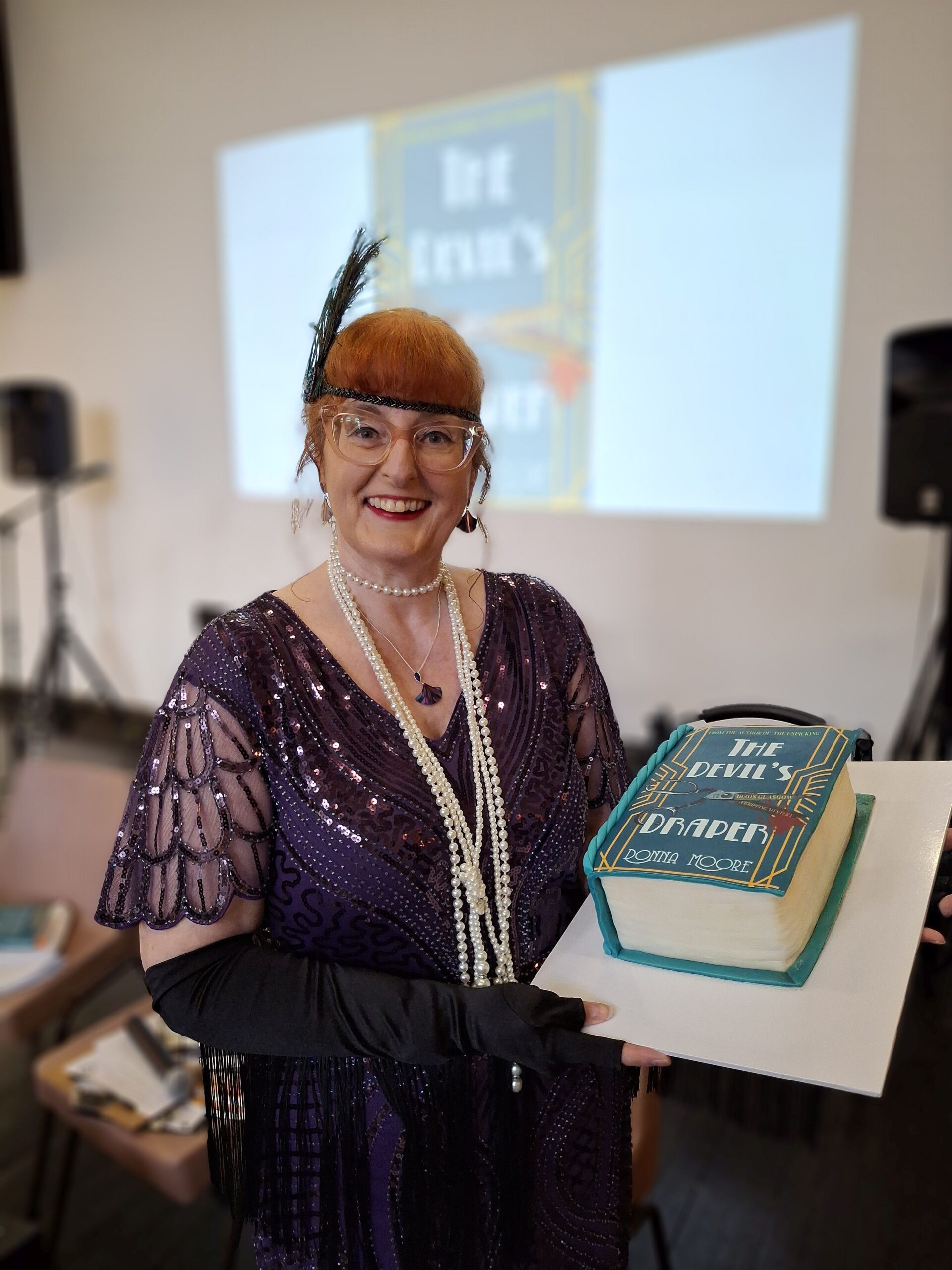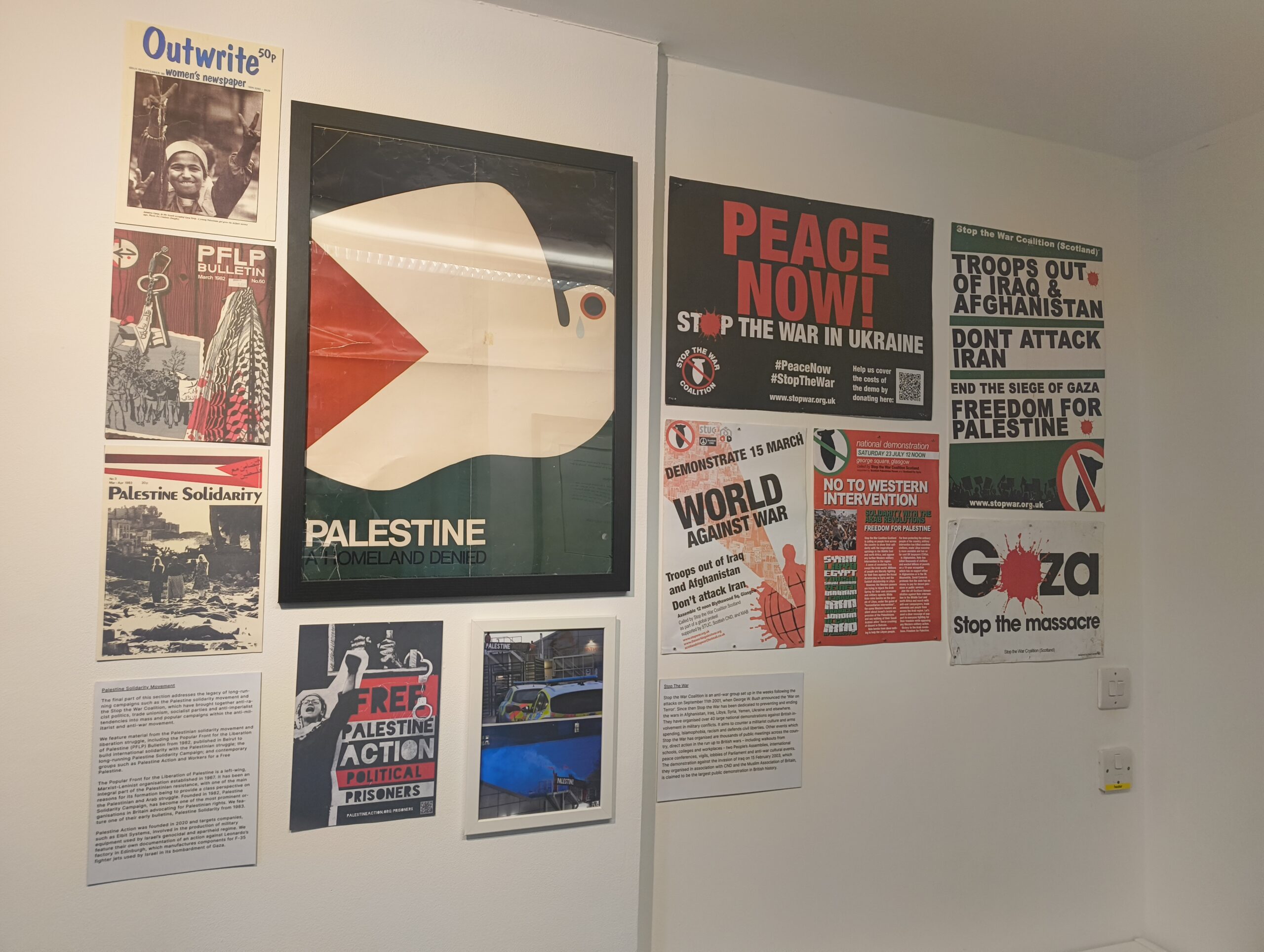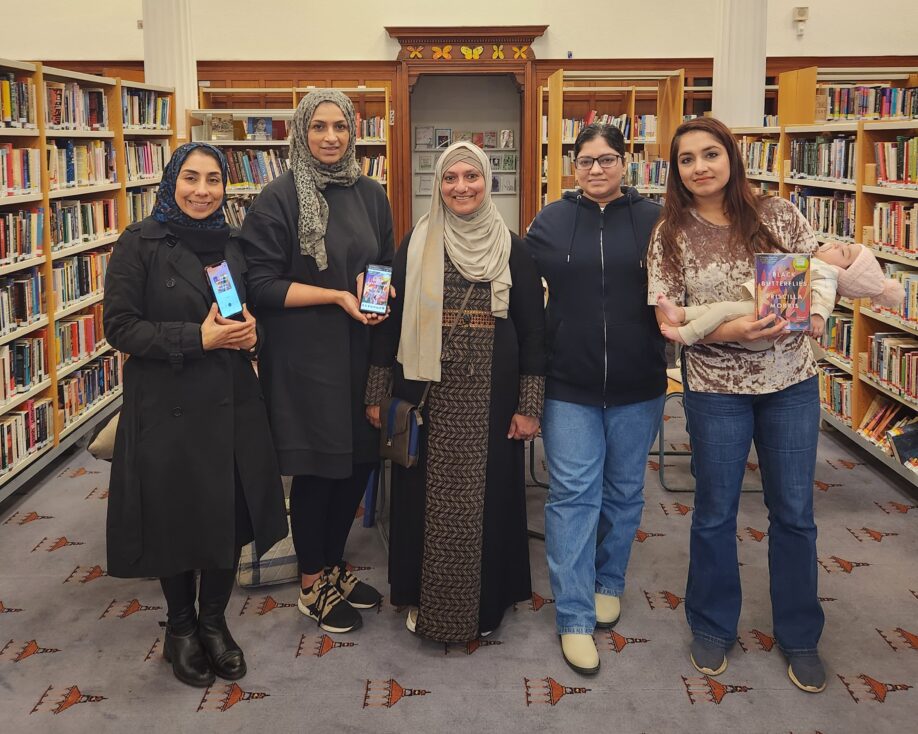“How’s your PhD?”
This is a question I’m asked regularly these days – by Women’s Library colleagues, friends and family. I pause, partly because I’m still a wee bit in disbelief that I’m undertaking this research (I’m very lucky!), but also it’s hard to know where to start – and I could talk about it for hours. I love to be asked about my research, and appreciate how people refer to it as though it’s a living entity of its own, like asking me “how’s your brother?”
It’s just over a year since I started my PhD at the University of Glasgow and introduced my topic, Satire and Suffragettes: Women’s Rights in Everyday Material Culture in Britain, 1900-1930, in this blog. The earlier parts of the first year were about planning and feet finding: undertaking mandatory courses (‘Research Integrity’; ‘Information Security’; ‘Equality and Diversity Essentials’…), and coming to terms with, well, terms – like ‘Methodology’ and ‘Moodle’. Of course, much of 2021’s study was off campus, so opportunities to meet other students and departmental staff teams online were invaluable. As well as courses and workshops organised by the College of Arts, I also loved the Scottish Graduate School for Arts and Humanities (SGSAH) ‘Summer School’ (at home!), and I was thrilled to be selected to present a paper on my research (online) at my first academic conference, Suffrage Now! International Conference on Gender and Democracy organised by Stockholm University.
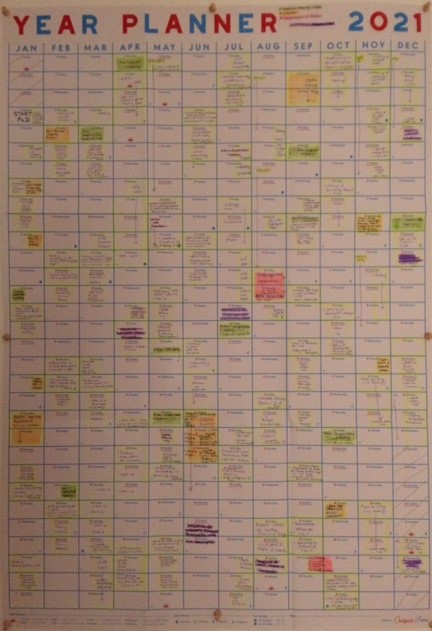
Getting down to the actual research has been a joy. Of course there is a lot of reading, and thinking, and even a bit of writing, and by the end of 2021 I could see structures emerge of future thesis chapters.
A two day visit to the archives of Bamforth & Co., held at Heritage Quay at the University of Huddersfield, was invaluable – and the staff so helpful. Bamforth & Co. were one of the most prolific producers of postcards in Britain, and suffrage activists – indeed women in general – were often centred in their satirical images. Each archive box held a bounty of information and primary sources, from contemporary interviews with local people who acted as ‘life models,’ to examples of the (re)use of specific locations for the staging of different postcard scenes. For example, the location below which, after detective work aided by the Holmfirth Community Facebook Page (thanks everyone!), was identified as Forster Square, Bradford. You will notice that the ‘women’ are in fact men, also a common characteristic in Bamforth’s output.
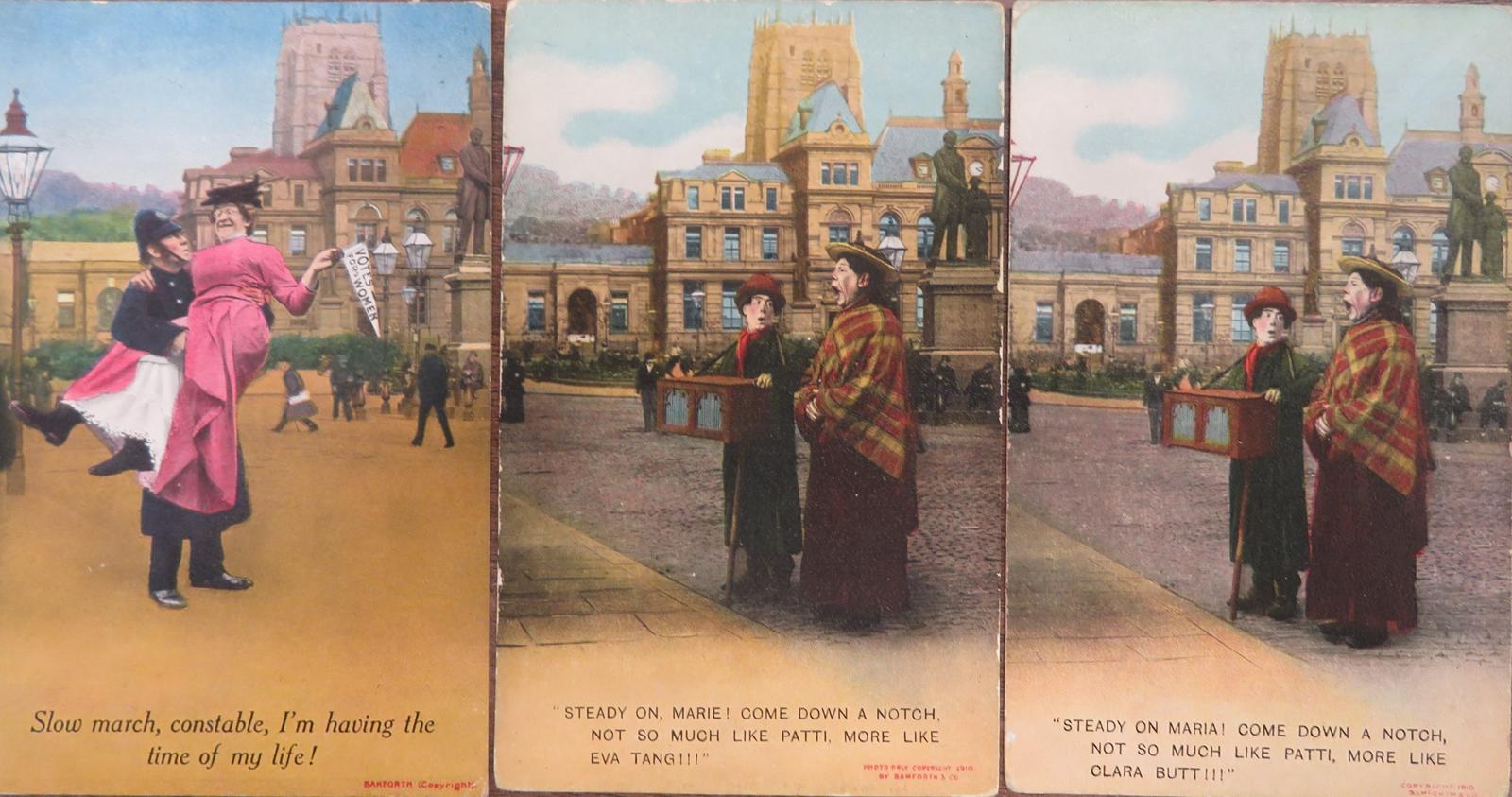
The postcard on the far left above serves as a lesson to look very closely at the images. Despite being fairly familiar with this postcard, it was only on reading Catherine H. Palczewski’s paper, “Domesticating Repression: Responses to Suffrage Advocates’ Body Argument in Postcards Depicting Police and Suffrage Advocates’ Interactions”1 that I noticed that the hand of the police officer is placed up the ‘suffragette’s’ petticoat. Depictions of police treatment of suffrage activists and the ‘comic’ value of violence against women are among several themes I will explore in further detail in my thesis.
Bamforth & Co. were also early pioneers of film making, progressing from lantern slide production. In a chapter that I am currently writing on the context that gave rise to a public appetite for the parodying of women and anti-suffrage propaganda in postcards, I am looking at early films with suffrage context.2 Among these are several made by Bamforth & Co., including ‘Women’s Right’s’, made in 1899 with Riley Brothers of Bradford – it is worth two minutes of time to view it. This short, silent film, with men dressed as (‘gossiping’) women as the central characters, also gave rise to lantern slides and then, several years later, to a set of postcards.
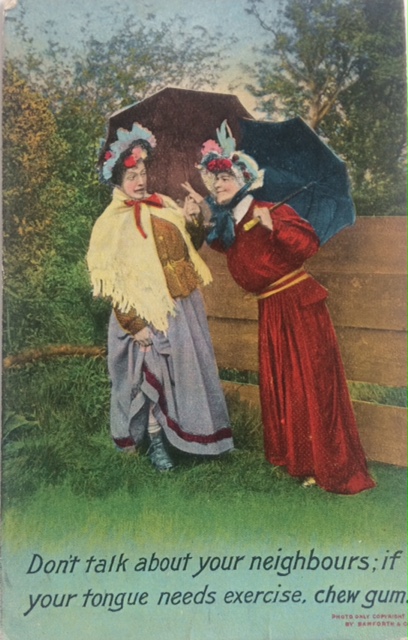
Among other Bamforth & Co. films on the theme of women’s suffrage is ‘Winky as a Suffragette’ (‘Winky’ was a character featured in dozens of their films) but ‘Suffragette Winky’ is proving very illusive indeed, and I’ve so far been unable to trace where this film is deposited. So, where’s Winky? If you come across him as a Suffragette, please do let me know!
I would like to thank, for their ongoing support and encouragement: my Supervisors, Dr Maud Bracke, Dr Alexandra Ross and Dr Caroline Gausden; the Scottish Graduate School for Arts and Humanities; the Arts and Humanities Research Council; the University of Glasgow, College of Arts; the Board and staff team at Glasgow Women’s Library. Thank you to Katina Bill, Senior Curator at Kirklees Council for all her generous help and support in accessing the Bamforth & Co. archive.
If you are interested in my research topic, hold any collections of suffrage memorabilia, or can help me in any way, please email me at sue.john@womenslibrary.org.uk or contact me on Twitter @SueJohnGWL
~
[1] Palczewski, Catherine H. “Domesticating Repression: Responses to Suffrage Advocates’ Body Argument in Postcards Depicting Police and Suffrage Advocates’ Interactions.” In The Functions of Argument in Social Context: Selected Papers from the Sixteenth Biennial Conference on Argumentation, edited by Dennis S. Gouran, 365-374. Washington DC: National Communication Association, 2010.
[2] Thanks to the work of the British Film Institute a number of these films can be viewed online: https://player.bfi.org.uk/free/collection/suffragettes-on-film

